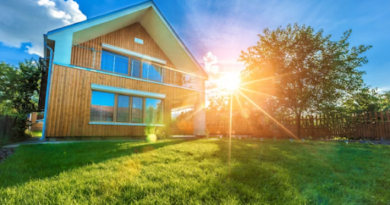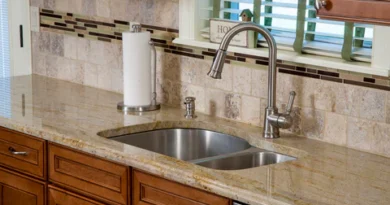5 Plumbing Tips to Keep Your Home Running Smoothly Year-Round
Plumbing is one of those things we rarely think about, until it goes wrong. A clogged drain, a leaky faucet, or inconsistent water pressure can throw off your entire day. Thankfully, with a little extra care and attention, you can avoid many common issues before they spiral into full-blown problems.
This post will walk you through five practical plumbing tips to keep your home’s system running efficiently all year round.
The Importance of Regular Residential Plumbing Maintenance
Think of your plumbing system like the circulatory system of your home. Pipes, drains, and fixtures all work together to ensure the smooth flow of water. When one component falters, it can cause a ripple effect that impacts your overall comfort.
Regular maintenance not only prevents small issues from escalating but also extends the lifespan of your plumbing system. Plus, investing in professional preventative residential plumbing often means fewer costly repairs, saving you both time and money in the long run.
Detect and Fix Leaks
Leaks may seem minor at first, but over time they can waste gallons of water and lead to higher bills, not to mention potential water damage. Spotting leaks early is key. Check under sinks, around toilets, and even in less obvious spots like behind appliances.
Watch out for signs like water stains, a musty smell, or unusually high water bills that could indicate a hidden leak. Once you’ve discovered a leak, addressing it promptly is crucial. Tighten loose connections, replace worn-out washers, or use plumbing tape for a temporary fix while you arrange for professional help.
Tips for Preventing Clogs in Your Home’s Plumbing
Few things are more frustrating than a slow-draining sink. However, most clogs are preventable. One of the simplest habits to adopt is being mindful of what goes down your drains. Avoid pouring grease, oil, or coffee grounds down the kitchen sink, as they can solidify and create blockages.
Similarly, in the bathroom, keep hair and soap residue from accumulating in your drains using strainers. Regularly flushing your drains with hot water or a mild vinegar and baking soda solution can also help keep them clear.
Maintain Healthy Water Pressure
Having consistent water pressure isn’t just about convenience, it can also affect the longevity of your plumbing system. Low water pressure can indicate underlying issues, like mineral buildup in pipes, while high water pressure can strain your system, leading to potential damage over time.
To ensure your water pressure stays in the ideal range, use a pressure gauge to measure it periodically. If it’s too high, consider installing a pressure regulator. And if it’s too low, inspecting for blockages or buildup could reveal the cause.
The Do’s and Don’ts of DIY Plumbing Fixes
There’s a certain satisfaction in fixing things yourself, but it’s essential to know when to call the plumbing experts. Simple tasks like unclogging a drain or replacing a faucet washer are great DIY opportunities. However, tackling more complex issues, like invasive pipe repairs or replacing a water heater, requires professional expertise.
Attempting complex fixes without the proper knowledge could lead to bigger problems down the line. If a problem feels beyond your skill level, don’t hesitate to reach out to a licensed plumber. They can ensure the work is done correctly, giving you peace of mind and saving you from potential headaches.



